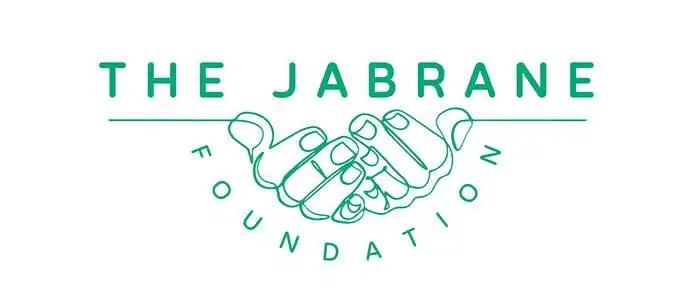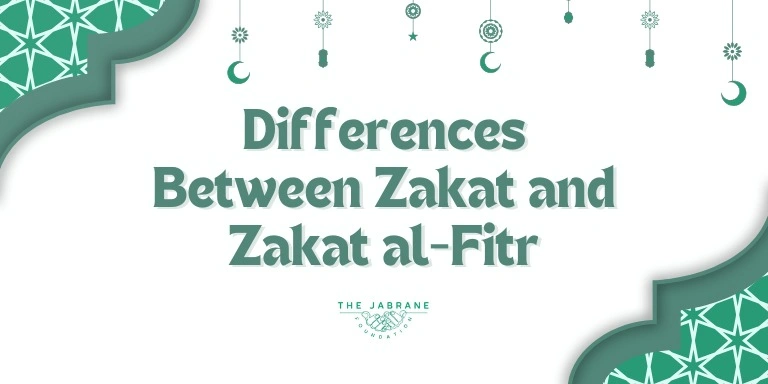Charity plays a vital role in Islam, serving as a means to purify wealth, help those in need, and create a just society. Two important types of charitable giving in Islam are Zakat and Zakat al-Fitr (Fitra). While both involve giving to the less fortunate, they are different in their purpose, amount, and timing.
Understanding the differences between fitra and zakat is important for Muslims who wish to fulfill their religious obligations correctly. This blog will explain what each term means, who needs to pay them, when they should be given, and how they benefit the community.
What is Zakat?
Definition and Meaning
Zakat is one of the Five Pillars of Islam, making it a fundamental religious duty for eligible Muslims. It is an annual charitable donation meant to purify wealth and help those in need. The word “Zakat” means purification and growth, symbolizing the act of cleansing one’s wealth by giving a portion to the poor. By giving zakat, Muslims acknowledge that their wealth is a blessing from Allah and must be shared with those who are less fortunate. It is not just a social obligation but a spiritual one that helps individuals purify their earnings and strengthen their faith.
Who Needs to Pay Zakat?
Not every Muslim is required to pay zakat. The following conditions apply:
- A Muslim must own a minimum amount of wealth, known as the Nisab.
- The wealth must be held for a full Islamic lunar year.
- Zakat is due on savings, gold, silver, business profits, investments, and livestock.
- It is 2.5% of total eligible wealth.
Additionally, the wealth should be free from any outstanding liabilities or debts. If a person’s wealth exceeds the Nisab but is tied up in debts or expenses, they may not be required to pay zakat. This ensures fairness in the system, allowing only those who can afford it to contribute.
When is Zakat Paid?
Zakat can be paid anytime in the year, but many prefer giving it during Ramadan for increased spiritual rewards. It is an annual obligation and must be given as soon as one’s wealth meets the Nisab threshold . The reason many people choose Ramadan for paying zakat is that rewards for good deeds are multiplied during this holy month. However, delaying zakat without a valid reason is discouraged, as it is meant to support those in need as soon as possible.
Who Receives Zakat?
The Quran (9:60) specifies eight categories of people who can receive zakat:
- The poor (those who barely have enough to survive)
- The needy (those in hardship but not openly begging)
- Those in debt
- Stranded travelers
- New Muslims or those inclined towards Islam
- Slaves seeking freedom (historically applicable)
- Those working to distribute zakat
- Those striving in the cause of Allah
These categories ensure that zakat reaches the most deserving individuals and contributes to social justice. It is essential to distribute zakat responsibly and not use it for purposes that do not align with its intended beneficiaries.
What is Zakat al-Fitr (Fitra)?
Definition and Purpose
Zakat al-Fitr, commonly known as Fitra, is a special charity given before Eid-ul-Fitr to ensure that even the poorest members of society can enjoy the Eid celebrations. Unlike regular zakat, it is not based on wealth but rather on individual responsibility. The primary goal of fitra is to purify a Muslim’s fasting experience and compensate for any minor mistakes made during Ramadan. It also reinforces the idea of community well-being, ensuring that no one is left out of the celebrations.
Who Needs to Pay Fitra?
Fitra is obligatory for every Muslim, regardless of their financial status. The head of the household is responsible for paying it on behalf of all family members, including children. This means that even newborn babies require fitra to be paid on their behalf. It is a way of ensuring that every Muslim, no matter their age or financial condition, takes part in an act of giving before celebrating Eid.
When is Fitra Paid?
Fitra must be paid before the Eid prayer so that it reaches the needy in time. If it is given after the prayer, it is considered regular charity (Sadaqah) and not Fitra. This timing is crucial, as the purpose of fitra is to allow the poor to enjoy the Eid festivities without worry. Many mosques and organizations set deadlines for fitra payments to ensure timely distribution.
What is the Amount of Fitra?
The amount of fitra is based on the cost of staple food items such as wheat, barley, dates, or rice. The exact amount varies depending on the region and is usually announced by Islamic scholars each year. The reason fitra is calculated based on food rather than money is to ensure that people in need receive something essential for their daily sustenance. However, in modern times, most organizations accept monetary payments and convert them into food supplies for the underprivileged.
Who Receives Fitra?
Fitra is specifically meant to help the poor and needy so they can celebrate Eid with dignity. It is not meant for mosque construction or other charity projects. The recipients of fitra are generally those who do not have sufficient means to afford a proper meal for Eid. This distinction is important, as fitra is meant to bring immediate relief to individuals, ensuring they do not feel excluded during the joyous occasion.
Key Differences Between Zakat and Zakat al-Fitr
| Feature | Zakat | Zakat al-Fitr (Fitra) |
| Obligation Type | Based on wealth | Based on individual responsibility |
| When to Pay | Any time in the year (annually) | Before Eid prayer |
| Amount | 2.5% of total eligible wealth | Fixed amount (cost of staple food) |
| Who Pays | Only Muslims whose wealth meets the Nisab | Every Muslim, regardless of wealth |
| Who Receives | Various categories including poor, debtors, and those in need | Specifically the poor and needy for Eid |
| Purpose | Purifies wealth and supports social welfare | Ensures everyone can celebrate Eid |
Why Both Are Important in Islam
Both fitra and zakat play an important role in helping the less fortunate and maintaining social justice in the Muslim community.
- Zakat helps redistribute wealth, ensuring that those in financial hardship receive support.
- Fitra ensures that even the poorest people can take part in the joy of Eid, promoting unity and compassion.
- Both forms of charity help strengthen the bond between rich and poor, fostering a caring and supportive society.
By fulfilling these obligations, Muslims not only purify their wealth but also earn spiritual rewards and contribute to the welfare of the community.
How to Calculate Zakat in Islam 2025
Conclusion
Understanding the differences between Zakat and Zakat al-Fitr (Fitra) is essential for Muslims who wish to practice their faith correctly. While zakat is an annual charity based on wealth, fitra is a smaller, one-time donation required before Eid.
Both forms of charity reflect the values of kindness, generosity, and social responsibility in Islam. By giving fitra and zakat, Muslims help the less fortunate, strengthen their faith, and ensure that wealth is distributed fairly in society.
To learn more about Islamic charity and how to fulfill these obligations, visit Jabran e Foundation.


